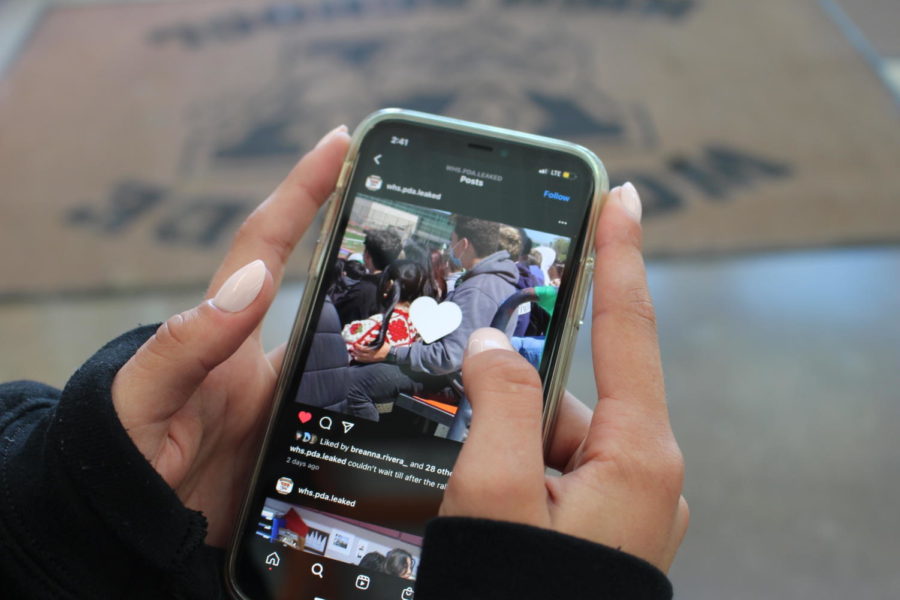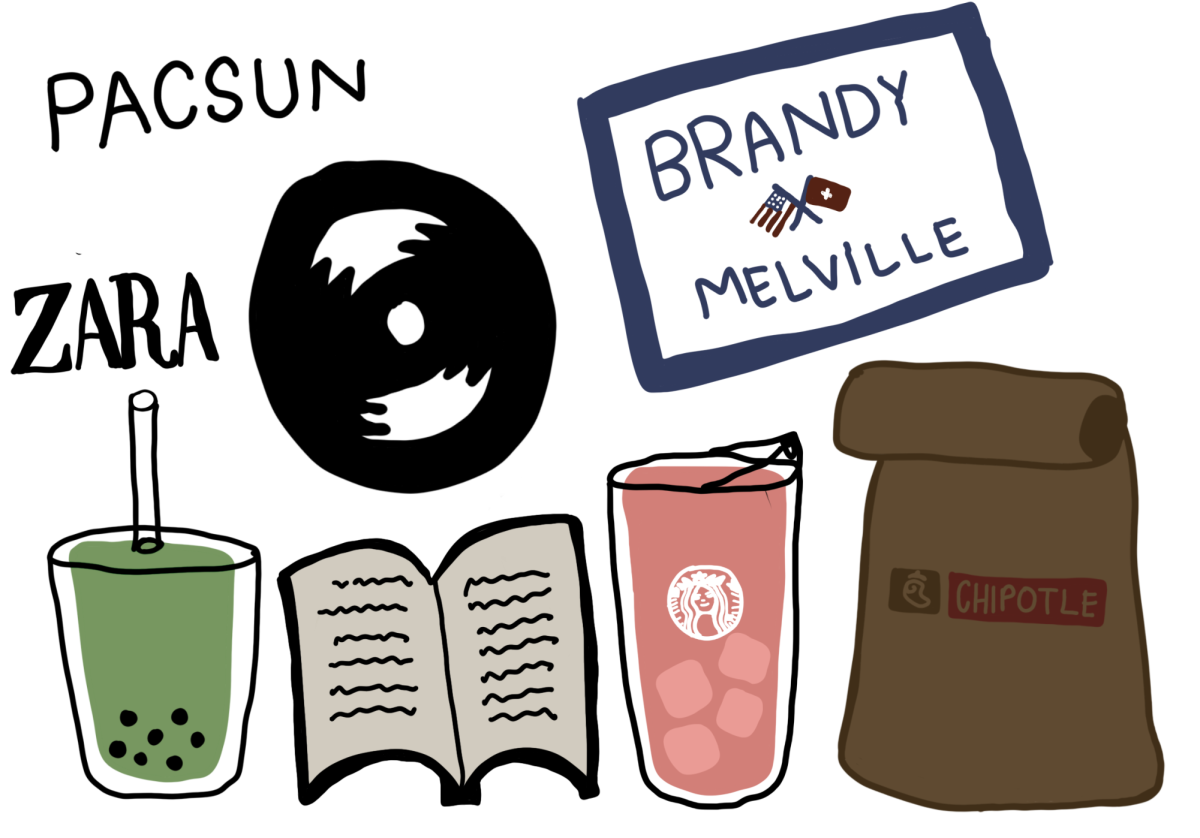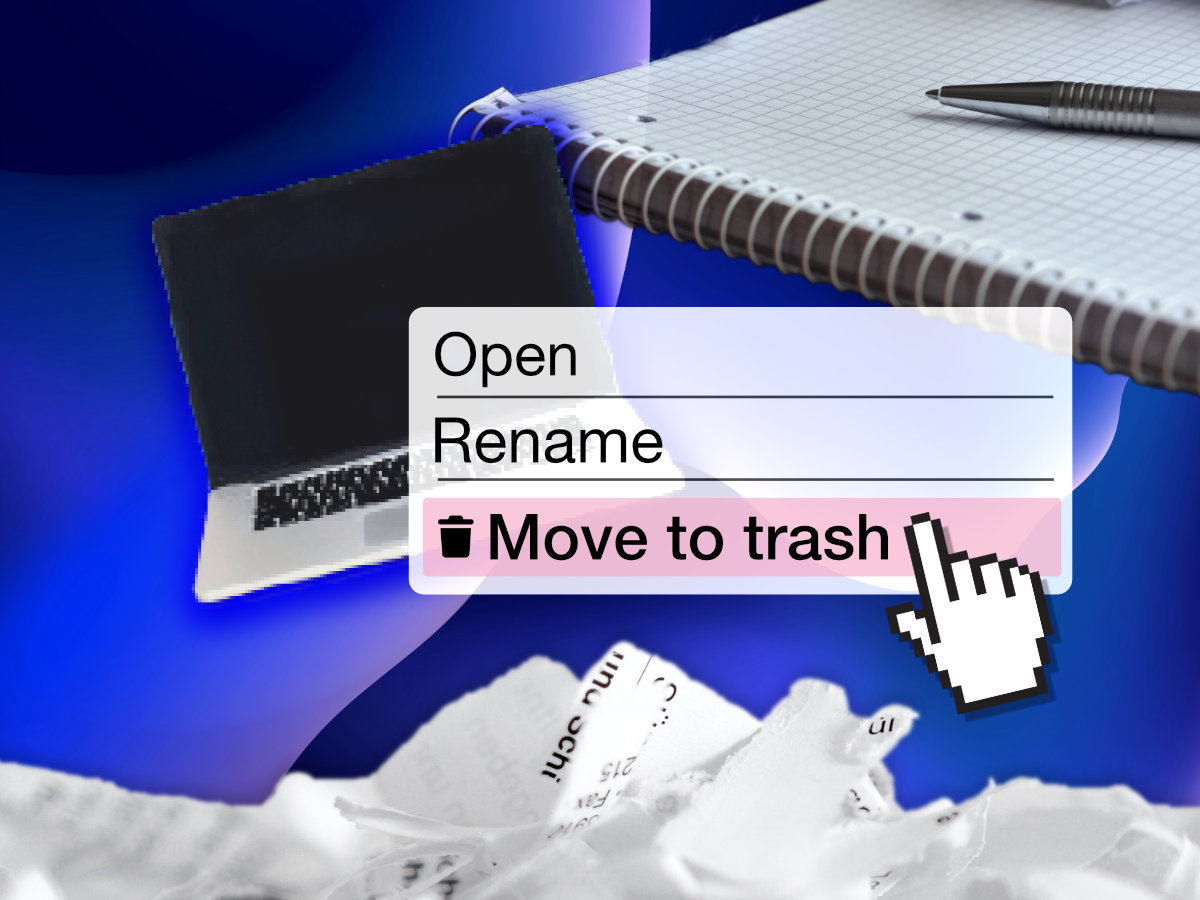Jessica Lin: I’m Jessica Lin.
Sofia Kalberer: I’m Sofia Kalberer.
Together: This is the Woodside Paw Print.
Jessica Lin: As social media has become more popular it’s subconsciously being implemented into almost everyone’s personal and daily lives. Whether it’s posting where you’re eating on your Instagram story, pulling out your phone to record for your Snapchat whenever something funny happens, or filming Tik Toks whenever you’re hanging out with friends, many users are downloading their lives onto social media.
Sofia Kalberer: People’s attitudes and relationships with social media have grown increasingly negative in certain areas as sharing content has become much easier and much more popular. New trends include users sharing parts of their lives such as what they’re eating, doing, and most commonly, what they are thinking. However, some, like sophomore Libby Pfendt don’t enjoy their social media feeds being flooded with unnecessary information.
Libby Pfendt: If you do share alot about yourself don’t expect like sympathy or anything. Because, I don’t know, it sometimes, it makes me uncomfortable when people, especially people I don’t know too well put me on like their private stories and show like every single little detail. I’m like, I really don’t care and I really don’t need to know that. Also, I think don’t post like super personal stuff. Like if you’re having family issues I feel like you need to deal with that privately and get only like your super close friends to help you. I don’t think you should be posting that on social media because then it seems more like you think of it’s a joke and it’s like a serious issue.
Jessica Lin: In addition to over-sharing, a recent trend on social media is talking about traumatic experiences by making jokes with popular sound bites. Although it may seem like a way for coping, social media allows others to comment on these posts, which may be harmful. Sophomore Annyella Mills thinks that it truly depends on the situation and purpose of the post.
Annyella Mills: it’s all your personal opinion and your own experience. When you want to laugh at your own, situation and things that have happened to you that is your choice. However, when it comes to laughing about other people’s situations, then that’s a whole different story.
Sofia Kalberer: With the rise of sensitive topics being discussed on social media Trigger warnings have popped up for videos or photos that cover topics such as sexual abuse, self-harm, or violence that may trigger trauma. Junior Amanda Marcos appreciates the use of trigger warnings.
Amanda Marcos: I think the trigger warnings are definitely useful. Like it mentally prepares people like if someone struggles with like body image issues. Or like blood, you know, it could help them and then they know to like avoid that. But if they do struggle with that, watching that video could actually help them see that they’re not alone in that issue. Body issues or like ADHD, that’s like an issue that sometimes you feel like you’re handling on your own, even though it’s super common. So those videos out there can be beneficial but then could also trigger like some intense emotions at the same time.
Jessica Lin: Social media is for posting pictures of users’ life, most of the time its pictures consisting of places, foods, and other users. This can create quite a toxic and competitive platform. As competition increases more and more users feel pressured to create the perfect image often opting to use photoshopped or face-tune. Marcos shared her personal experiences on social media and how it affected her perception of body image.
Amanda Marcos: If there’s a girl that has like, quote-on quote, perfect body, that image affects other people as they think that that body’s attainable even though it could be edited, could be photoshopped. So it leads to people having a negative effect on themselves just because someone said that. That is like the ideal body.
Sofia Kalberer: It’s not uncommon to scroll through social media and see teens drinking and partying in posts and stories. The lack of filter and concern many high schoolers are demonstrating has raised discussion about colleges and future jobs doing background checks and denying applicants. On the flip side, colleges and companies can get a sense of who you are through social media. Senior Chole Montgomery does not have to worry about a digital footprint since she doesn’t use social media a lot.
Chloe Mongomery: It also can give you a positive footprint, I think. You know if you have like all like, if you’re, you know, really active with certain groups and volunteering and stuff, they can look to that and be like ‘ah proof’. But yeah, it can give a negative footprint I guess as well if you are posting yourself doing illegal things.
Jessica Lin: Social media will not be disappearing. However, users must remember to take into account how true something is and whether it’s negatively impacting them. Mills concluded that the toxicity of social media is evident.
Anynyella Mills: Whether that’s like body standards or like just like going out with your friends or just like posting a certain amount of times. It’s definitely it can be very overwhelming at times.
Sofia Kalberer: For the Woodside Paw Print.
Jessica Lin: This is Jessica Lin.
Sofia Kalberer: And Sofia Kalberer.
Jessica Lin: Signing off.










